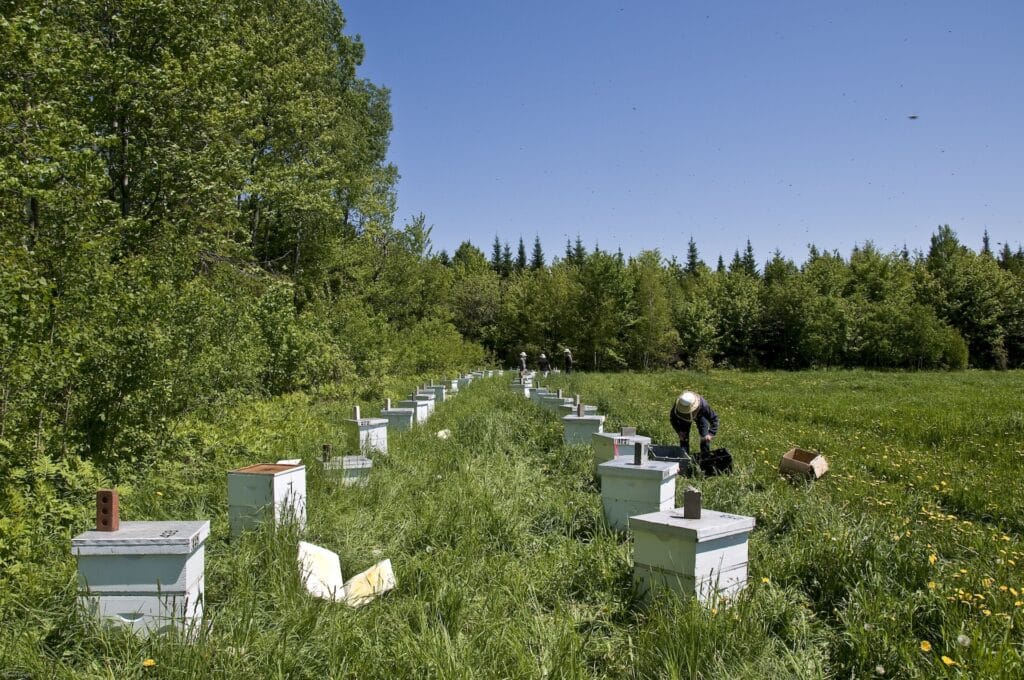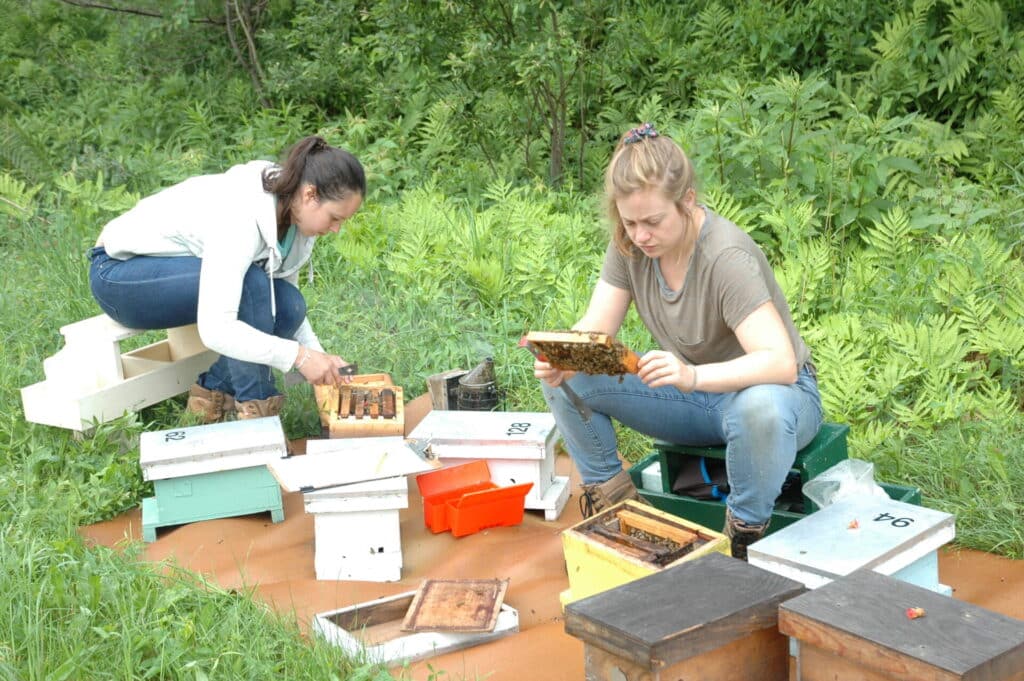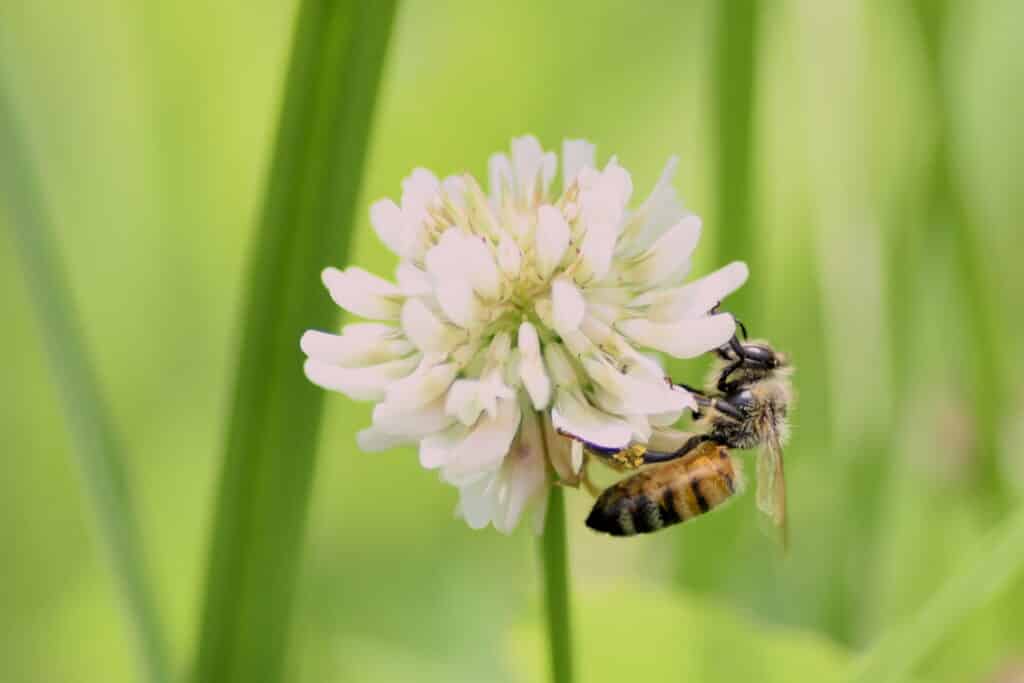Academic team: Pierre Giovenazzo, PhD. (Université Laval)
Receptor organization team: Ségolène Maucourt and Andrée Rousseau(Centre de recherche en sciences animales de Deschambault, CRSAD)
Each year our Canadian beekeeping industry produces nearly 75 million pounds of honey worth $253 million and offers pollination services that make an annual contribution to agricultural crops, such as canola and blueberries, worth an estimated $4.5–6.1 billion. Unfortunately, since the last 15 years, beekeepers suffer an average winter colony loss of 26%. The highest ever recorded loss occurred during winter 2022, when beekeepers across Canada lost 46% of their 800,000 colonies and imported 360,000 queens and 60,000 packages of bees from various countries to rebuild their honey bee livestock. Thus, supporting the Canadian honey bee queen rearing and breeding is a sustainable solution to help ensure Canadian honey bee stock self-sufficiency.
The ApiOmic project will implement the use of genomic tools to produce honeybee stock that is winter hardy, productive and disease resistant, thus ensuring efficient pollination services, superior honey production and increasing sustainability of our Canadian beekeeping industry. ApiOmic will use the novel Illumina Honeybee SNP array that provides a cost-effective genomic tool for breeding and selection. ApiOmic will develop a routine estimation of genomic breeding values by maintaining reference honeybee selected lines at the Centre de recherche en sciences animales de Deschambault and by following performances of selected lines in commercial queen breeding operations of the Apiculteurs et apicultrices du Québec and of those in other provinces. The genomic and pedigree database will be available to all via the non-human genomics data valorization center, Genovalia.




